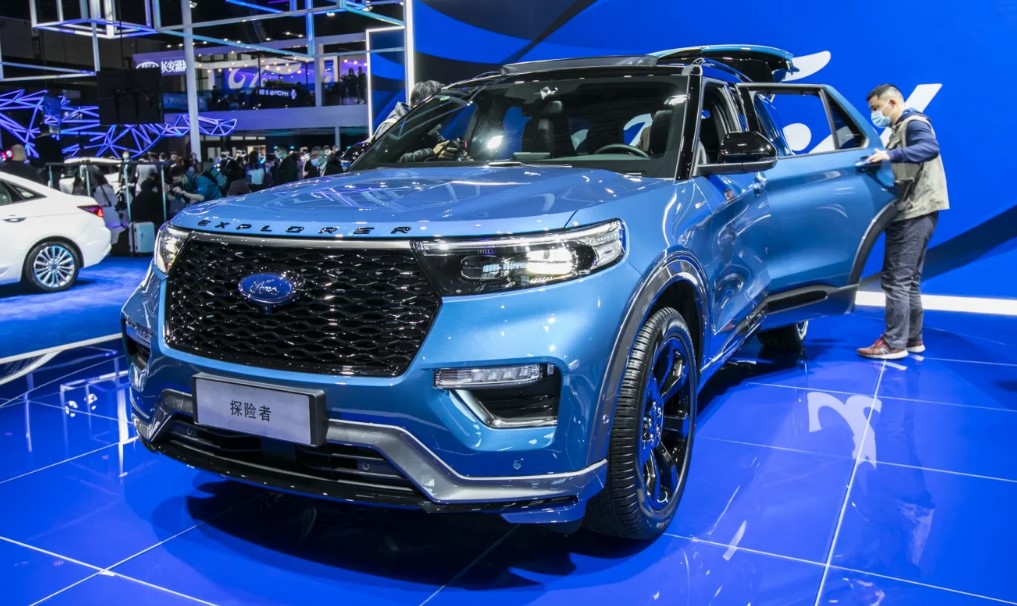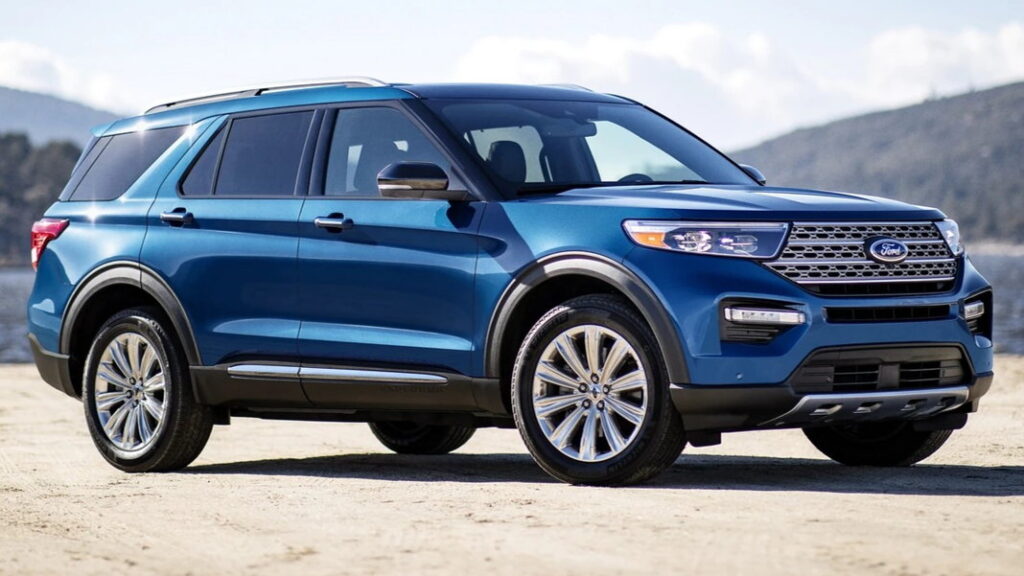Navigating the Future: Fuel Efficiency in the 2025 Ford Explorer
Navigating the Future: Fuel Efficiency in the 2025 Ford Explorer
Introduction
In this auspicious occasion, we are delighted to delve into the intriguing topic related to Navigating the Future: Fuel Efficiency in the 2025 Ford Explorer. Let’s weave interesting information and offer fresh perspectives to the readers.
Table of Content
/https://www.forbes.com/wheels/wp-content/uploads/2022/05/FordExplorerEVMain.png)
Navigating the Future: Fuel Efficiency in the 2025 Ford Explorer
The automotive landscape is constantly evolving, with a growing emphasis on sustainability and fuel efficiency. The Ford Explorer, a popular SUV known for its versatility and capability, is no exception. As we approach 2025, the Explorer is poised to offer drivers a compelling blend of performance and fuel economy, reflecting the industry’s shift towards greener solutions.
The Evolution of Fuel Efficiency:
The 2025 Explorer is expected to build upon the foundation laid by its predecessors, incorporating advanced technologies and design elements to enhance its fuel efficiency. This evolution is driven by several factors:
- Government Regulations: Stringent fuel economy standards set by regulatory bodies are prompting automakers to prioritize efficient engine technologies and lightweight materials.
- Consumer Demand: Consumers are increasingly aware of environmental concerns and the economic benefits of fuel-efficient vehicles. The demand for models that minimize fuel consumption is driving innovation in the industry.
- Technological Advancements: Advancements in engine design, hybrid and electric powertrains, and aerodynamic optimization are enabling automakers to achieve greater fuel efficiency without compromising performance.
Projected Fuel Economy:
While specific fuel economy figures for the 2025 Explorer are not yet available, several factors suggest significant improvements over previous models:
- Engine Options: The 2025 Explorer is likely to offer a range of engine options, including turbocharged four-cylinder engines, hybrid powertrains, and potentially even a fully electric variant. These options will cater to diverse driving needs and preferences, while offering enhanced fuel economy.
- Aerodynamic Enhancements: The 2025 Explorer is likely to feature refined aerodynamics, incorporating design elements that reduce wind resistance and improve fuel efficiency.
- Weight Optimization: Utilizing lightweight materials like aluminum and high-strength steel will further contribute to improved fuel economy by reducing the overall weight of the vehicle.
Benefits of Improved Fuel Efficiency:
The enhanced fuel efficiency of the 2025 Explorer will translate into a multitude of benefits for drivers:
- Reduced Fuel Costs: Lower fuel consumption translates directly into savings at the pump, providing drivers with greater financial flexibility.
- Lower Emissions: Improved fuel economy reduces the amount of greenhouse gases released into the atmosphere, contributing to a cleaner and more sustainable environment.
- Increased Range: With a more efficient engine, drivers can travel greater distances between refueling stops, enhancing convenience and peace of mind.
- Enhanced Performance: In some cases, improved fuel efficiency is achieved without sacrificing performance, allowing drivers to experience both economic benefits and driving enjoyment.
Frequently Asked Questions (FAQs):
Q: What are the expected fuel economy figures for the 2025 Ford Explorer?
A: While precise figures are not yet available, the 2025 Explorer is expected to achieve significant improvements in fuel economy compared to previous models. It is likely to offer a range of engine options, each with its own fuel efficiency rating.
Q: Will the 2025 Explorer be available with a hybrid or electric powertrain?
A: It is highly likely that the 2025 Explorer will offer hybrid and potentially even fully electric powertrain options. These options will cater to drivers seeking enhanced fuel efficiency and reduced emissions.
Q: How will the 2025 Explorer’s design contribute to its fuel economy?
A: The 2025 Explorer is expected to feature refined aerodynamics, incorporating design elements that reduce wind resistance and improve fuel efficiency. Additionally, utilizing lightweight materials will further contribute to improved fuel economy.
Q: What are the environmental benefits of the 2025 Explorer’s improved fuel efficiency?
A: Lower fuel consumption translates into reduced greenhouse gas emissions, contributing to a cleaner and more sustainable environment.
Tips for Maximizing Fuel Efficiency:
- Drive Efficiently: Maintain a consistent speed, avoid harsh acceleration and braking, and anticipate traffic flow to optimize fuel consumption.
- Proper Tire Inflation: Ensure tires are inflated to the recommended pressure, as underinflated tires can increase fuel consumption.
- Regular Maintenance: Regularly service your vehicle, ensuring that the engine, transmission, and other components are operating efficiently.
- Reduce Unnecessary Weight: Minimize the amount of cargo and unnecessary items in the vehicle to reduce its overall weight.
- Use Fuel-Efficient Driving Modes: If your vehicle offers different driving modes, utilize the fuel-efficient mode when appropriate.
Conclusion:
The 2025 Ford Explorer is poised to be a compelling option for drivers seeking a balance of capability, versatility, and fuel efficiency. With its advanced technologies, optimized design, and potential for hybrid and electric powertrains, the Explorer is set to offer significant improvements in fuel economy, translating into lower fuel costs, reduced emissions, and a more sustainable driving experience. As the automotive industry continues its journey towards a greener future, the 2025 Explorer represents a step forward in achieving both performance and efficiency.








Closure
Thus, we hope this article has provided valuable insights into Navigating the Future: Fuel Efficiency in the 2025 Ford Explorer. We appreciate your attention to our article. See you in our next article!